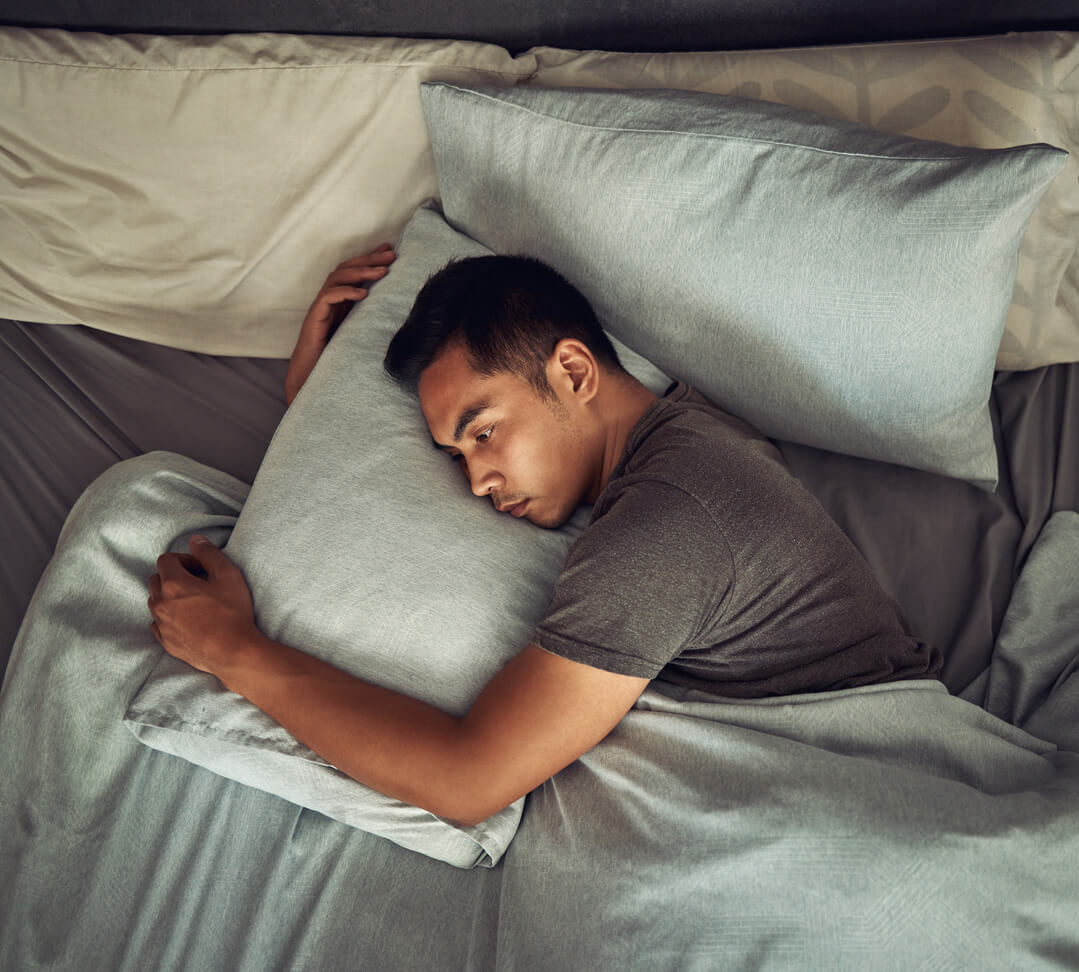Although sleep is a natural restorative process, more people than you might imagine wake up “on the wrong side of the bed” due to pain that developed while they were supposedly resting and relaxing. Besides the aches and pains that may be the result of existing illnesses and injuries, or those that are widely reported (e.g. jaw soreness from teeth-grinding), a great many patients experience shoulder pain because of the way they sleep.
At Long Island Spine Rehabilitation Medicine, our doctors have many remedies to diagnose and successfully treat patients with sleep-induced shoulder pain. If you are experiencing shoulder pain that is interfering with your mobility or general quality of life, contact us to discover how quickly and thoroughly our holistic, nonsurgical intervention can help you heal.
Reasons You May Have Sleep-Related Shoulder Pain
While some research has shown that individuals who sleep on their side are more prone to shoulder pain than those who sleep on their backs or stomachs, other studies disagree. Any kind of sleeper can suffer shoulder pain.
This is particularly true if the individual has fallen asleep in an unusual location or position, or on a bad mattress with unsupportive pillows. Nonetheless, we find that patients who repeatedly sleep putting pressure on one shoulder are adversely affected.
In many cases, an underlying condition or previous injury puts a particular person at increased risk of neck and shoulder problems. Also, sleeping on the same side night after night can put a strain on the affected shoulder.
Common Causes of Shoulder Pain After Sleeping
Among the common causes of sleep-related shoulder pain we treat at Long Island Spine Rehabilitation Medicine are:
Osteoarthritis
Although osteoarthritis is due to the wear and tear of joints as a result of aging (sometimes worsened by injury), prolonged sleeping that puts pressure on one shoulder may accelerate cartilage breakdown inside the acromioclavicular (AC) joint or elsewhere in the shoulder. Osteoarthritis of the shoulder has a number of distinctive symptoms, including stiffness, painful clicking or popping sounds and sensations, and pain that worsens with movement.
Impingement
During side sleep, the rotator cuff tendons can be squeezed between the humerus and scapular bones. This can result in prolonged compression and friction of the rotator cuff (the group of muscles and tendons that surround the shoulder joint). Symptoms of impingement include pain and weakness with reaching or overhead activities. Unfortunately, if not properly treated, shoulder impingement may progress to other painful conditions, including bursitis, tendonitis, or rotator cuff tears.
Bursitis
Bursae are fluid-filled sacs. In the shoulder, as in other joints, bursae help cushion bones and tendons. Ongoing impingement in the region due to side sleeping may result in inflammation of these bursae, known as bursitis, leading to worsening pain, stiffness, and restricted range of motion.
Rotator cuff tears
Rotator cuff muscles are attached to the joint bones (humerus and scapula) by way of a rotator cuff tendon. Prolonged or repetitive impingement of the rotator cuff tendons can cause microscopic tears (tendonitis) that may eventually lead to more serious rotator cuff tears. Symptoms of rotator cuff tears include pain and weakness at the shoulder.
Frozen Shoulder
Frozen shoulder, also known as adhesive capsulitis, causes stiffness and pain in the shoulder joint. The condition has a gradual onset, worsening with time. In many cases, having had to immobilize the shoulder for a prolonged period, e.g. after a fracture, post-surgery, or during a lengthy period of bed rest, precipitates tissue thickening, giving rise to this painful, restrictive condition.
Unfortunately, once the pain has worsened, patients tend to keep the arm immobile to avoid suffering, but this only exacerbates the problem. Our range of motion exercises will assist you in regaining mobility as well as easing pain.
Diagnosis of Sleep-Related Shoulder Pain
Because we know that finding the appropriate treatment necessitates making an accurate diagnosis, we use cutting-edge imaging tests (e.g. MRI scans), electromyography studies, and diagnostic injections to ferret out the root cause of your shoulder pain.
Treatment of Sleep-Related Shoulder Pain
Our physiatrists have numerous treatments, both traditional and complementary, to provide you with relief from shoulder pain, stiffness, and immobility. These include:
- Physical therapy with electrical stimulation and range-of-motion exercises
- Corticosteroid injections
- Acupuncture
- PRP (platelet-rich plasma) therapy
- PEMF (pulsed electromagnetic field) therapy
Contact Our Experienced Doctors Today
Our physiatrists specialize in alleviating pain and restoring normal function. We are deeply committed to making each of our patients feel better as quickly as possible and would like nothing better than relieving your shoulder pain so you can better enjoy your life.
